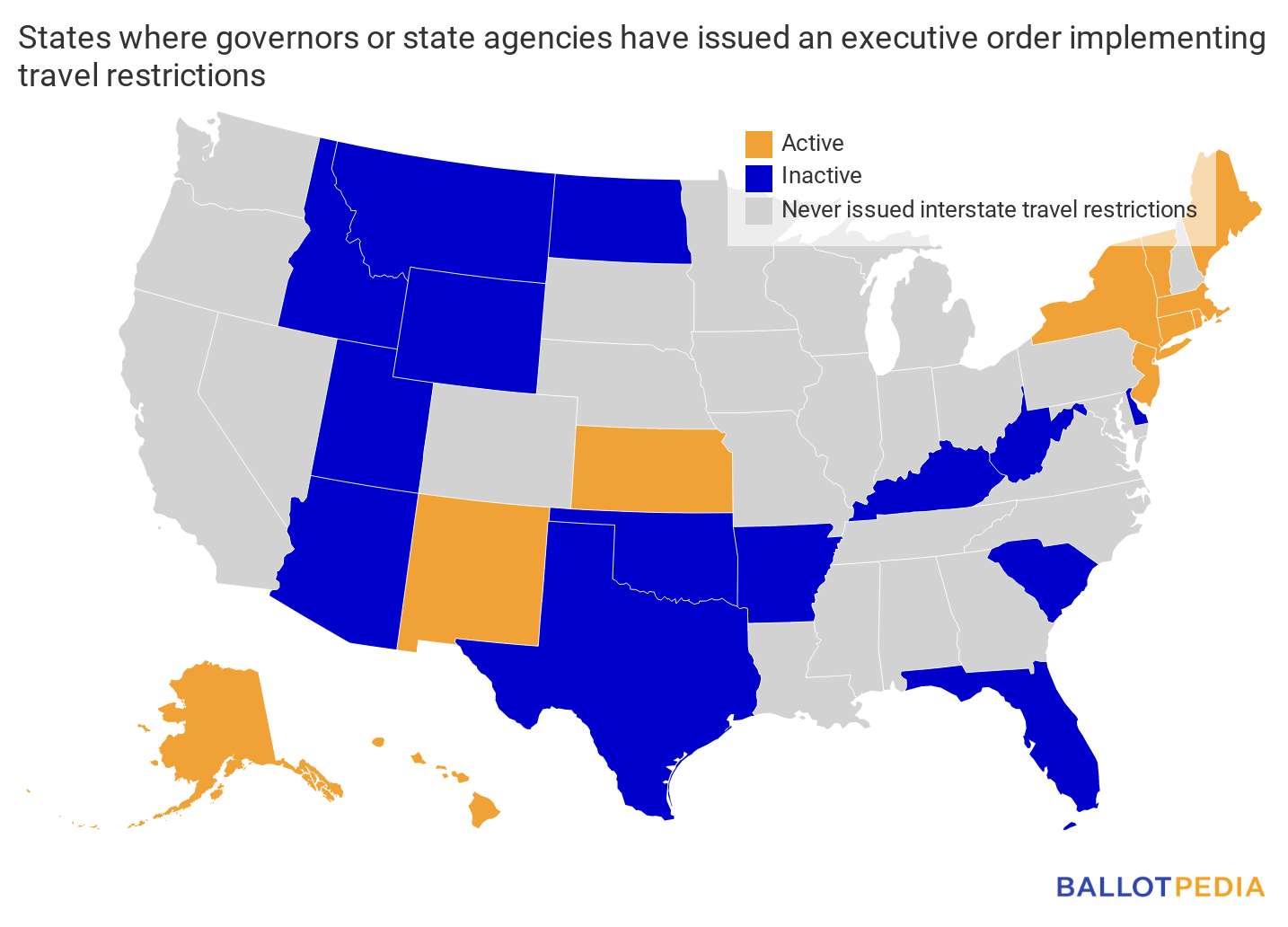| Welcome to Documenting America’s Path to Recovery, where we track the status of reopening in all 50 states. Today we look at indoor dining reopening in New Jersey, North Carolina moving to a new stage of reopening, travel restrictions, and much more. Want to know what happened yesterday? Click here.
In observance of the Labor Day holiday, we will not be publishing an issue on September 7. We will be back to our regular publication schedule on September 8.
Since our last edition
What is open in each state? For a continually updated article on reopening status in all 50 states, click here.
- Arizona (Republican trifecta): State health officials announced that 10 of the state’s 15 counties met the requirements to move to a hybrid learning model. Two of those counties, Greenlee and La Paz, met the benchmarks to resume full-time in-person education.
- Delaware (Democratic trifecta): Gov. John Carney (D) signed the sixth extension of his state of emergency order. The new extension is set to last indefinitely. A state of emergency was first declared on March 12.
- Nevada (Democratic trifecta): The state’s coronavirus mitigation task force announced that bars would remain closed in four counties for at least two more weeks. Bars are currently closed in Clark, Elko, Nye, and Washoe counties.
- New Mexico (Democratic trifecta): Gov. Michelle Lujan Grisham (D) announced travelers from states with a positivity rate under 5% do not have to self-quarantine, effective Sept. 4. Lujan Grisham also said hotels that have been safe-certified will be able to expand their maximum occupancy to 75%.
- North Carolina (divided government): Effective Sept. 4 at 5 p.m., the state will enter Phase 2.5 of reopening, which Gov. Roy Cooper (D) announced on Sept. 1. Under Phase 2.5, the limit on gatherings will increase to 25 people indoors and 50 people outdoors. Museums and aquariums can reopen at 50% capacity. Gyms and indoor exercise facilities can reopen at 30% capacity. Several restrictions, like the ban on bars and movie theaters, will remain in effect.
- North Dakota (Republican trifecta): On Sept. 3, Gov. Doug Burgum (R) announced that he was classifying eight counties as having a greater risk of COVID-19 spread under the state’s color-coded reopening system. Burgum reclassified the counties from green, or low risk, to yellow, meaning moderate risk. He also moved 13 counties to blue, which represents the lowest risk. Most of the state is classified green.
Daily feature: Travel restrictions
Every Friday, we’ll take a closer look at the restrictions governors and state agencies have placed on interstate travelers, including a recap of the week’s travel-related news. To see our full coverage of travel restrictions enacted in response to the coronavirus pandemic, click here.

Overview
To date, 25 states issued at least one executive order restricting interstate travel. Of the 25 executive orders governors or state agencies issued restricting out-of-state visitors, at least 14 have been rescinded. Eleven states have active travel restrictions.
Weekly recap
- On Aug. 2, Massachusetts added Colorado, Delaware, Pennsylvania, and West Virginia to its list of lower-risk states, exempting travelers and returning residents from those areas from having to quarantine for two weeks upon arriving in Massachusetts.
- On Sept. 1, Govs. Ned Lamont (D-Conn.), Phil Murphy (D-N.J.), and Andrew Cuomo (D-N.Y.) announced that Alaska and Montana had been placed back on the joint travel advisory list, after having been removed Aug. 25. The travel advisory requires travelers entering the tristate area to self-quarantine for 14 days.
|
Additional activity
In this section, we feature examples of other federal, state, and local government activity, private industry responses, and lawsuits related to the pandemic.
- Palm Beach County, Florida, will enter Phase Two of reopening on Sept. 8, with schools allowed to resume in-person instruction on Sept. 15.
- Baltimore Mayor Jack Young announced that the city would proceed to Phase Three of reopening on Sept. 4 with the rest of the state.
- Somerville, Massachusetts, will enter Phase Three of reopening on Sept. 8. Somerville is the only community in the state still in Phase Two of reopening.
- On Aug. 27, Judge Douglas Harpool of the U.S. District Court for the Western District of Missouri dismissed televangelist Jim Bakker’s lawsuit against four Arkansas and California attorneys who are investigating Bakker’s sale of a silver-based product he claims can cure COVID-19. In his complaint, filed against the Attorney General of Arkansas, the District Attorneys of Merced and San Joaquin Counties, and the City Attorney of Los Angeles, Bakker alleged he was “divinely inspired” to sell the product “to the world, and such offerings are an integral part of” his religious mission. Bakker sued to block the collection of names, addresses, and personal financial information, arguing it would amount to a violation of the freedom to exercise religion and freedom of speech. Harpool ruled Bakker “cannot establish the minimum contacts required to invoke personal jurisdiction” over the attorneys in the Western District Court, a procedural requirement limiting the courts in which a defendant can be sued. Consequently, Harpool dismissed Bakker’s suit. Arkansas Attorney General Leslie Rutledge (R) said, “I will not tolerate illegal schemes used by Mr. Bakker that directly harm Arkansas consumers financially or physically.” Former Missouri Gov. Jay Nixon (D), an attorney for Bakker, said: “It’s extremely disturbing that this is happening in America.” Harpool was appointed to the bench by President Barack Obama (D).
|


